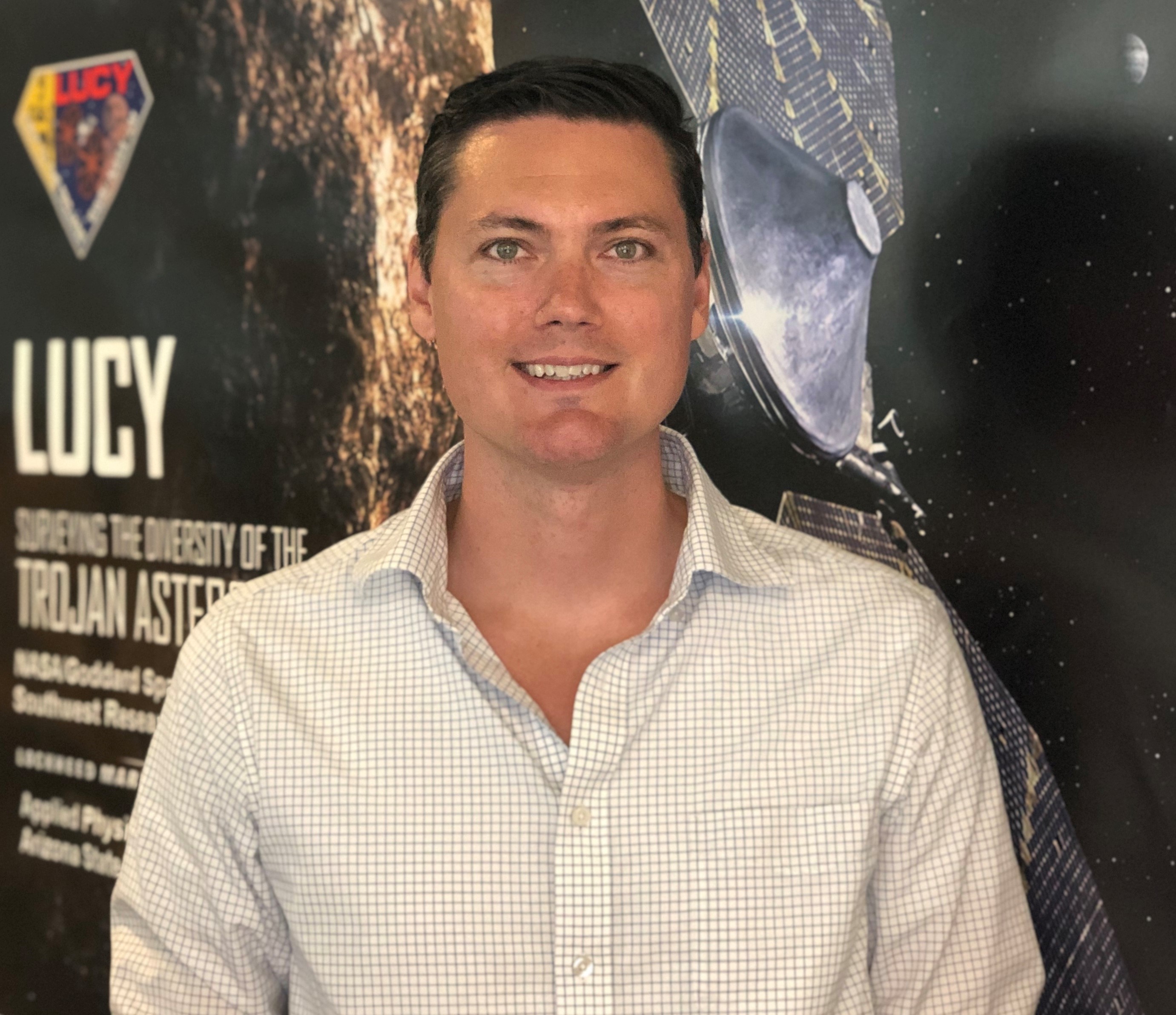Colby Goodloe, Code 599

Thursday, July 28, 2022 - 10:30am (ET)
WebEx
Meeting number (access code): 2761 599 8602
Meeting password: SeS@NASA22
Join by phone - 415-527-5035 (US Toll)
Access code: 276 159 98602
Abstract:
Lucy launched on October 16, 2021, to survey the Trojan asteroids trapped in the Sun-Jupiter L4 and L5 Lagrange points. These bodies are believed to be the remnants of the primordial material that formed the outer planets, serving as time capsules for the birth and formation of our Solar System. Lucy is a GSFC-managed Discovery class mission with a Lockheed Martin Deep Space Exploration group designed, built, and tested spacecraft. This seminar will talk about the technical management model and processes that led to the successful launch as well as an extension of those processes through an early in-flight anomaly with the solar array.
Biography:
Colby Goodloe served as the Project Spacecraft Systems Engineer for the Lucy mission to Jupiter's Trojan asteroid for the last 3 years, including the last 9 months as the Solar Array Anomaly Resolution Team Chair. Prior to that, Colby led the development of GSFC's in house SmallSat modular spacecraft bus architecture. He has been at GSFC for 21 years, the last 8 as a system engineer serving as a lead for multiple Venus mission proposals, the deputy MSE for the Capture Module on the cancelled Asteroid Redirect Mission, a V&V engineer on the OSIRIS-REx asteroid sample return mission, and the technical lead on ACHIEVE, a multi-disciplinary, multi-national ground-based instrumentation suite studying aerosol-cloud interactions. Earlier in his career, Colby worked in Code 596, Components and Hardware Systems, and Code 566, Telecom Networks and Technology as an electrical engineer on LCRD, ATLAS/ICESAT-2, Navigator, FASTSAT, GPM, and SDO. He is currently the Lead Systems Engineer for the in-house Descent Sphere on the DAVINCI mission scheduled to plunge into the Venusian atmosphere in 2031.